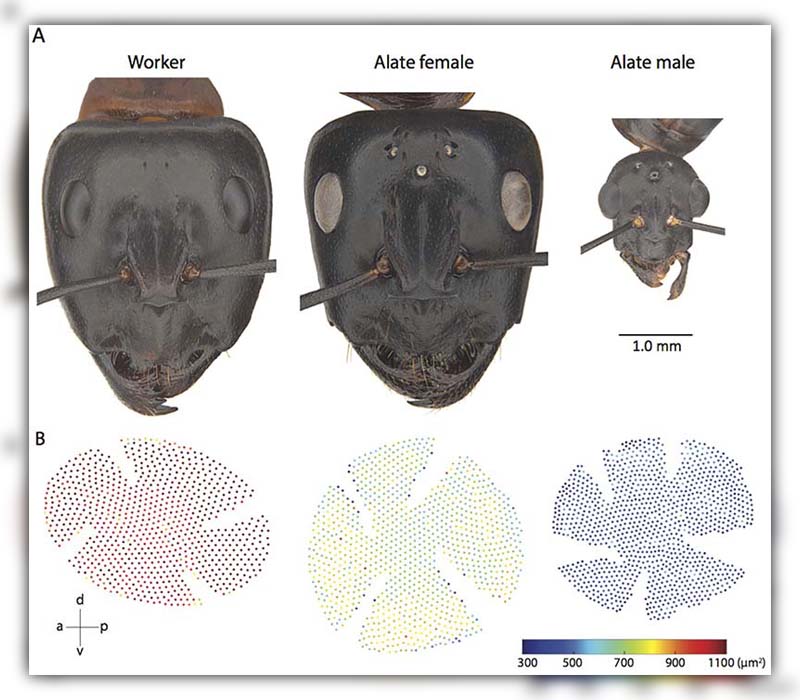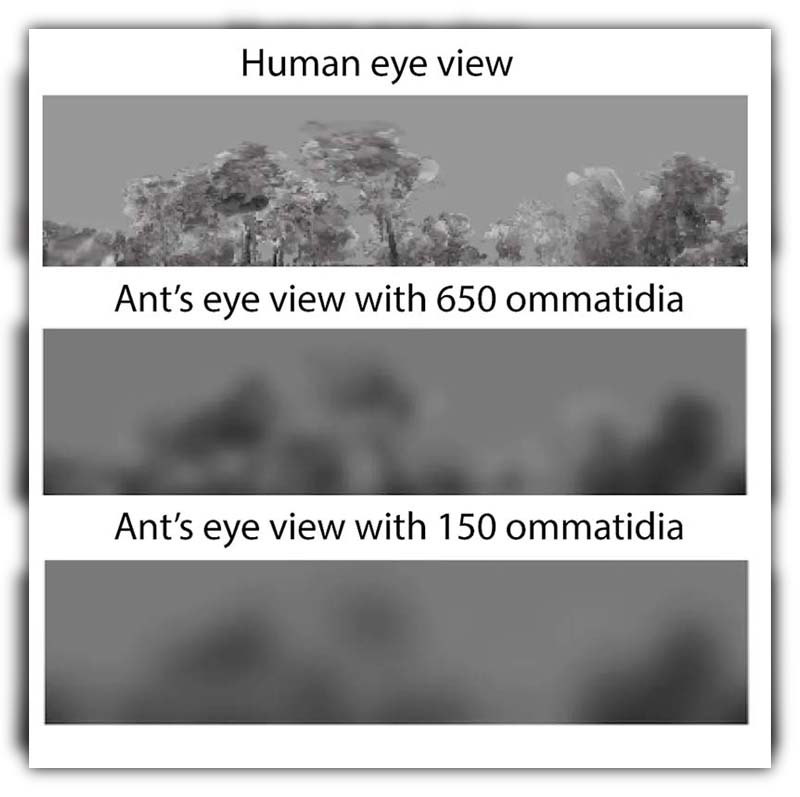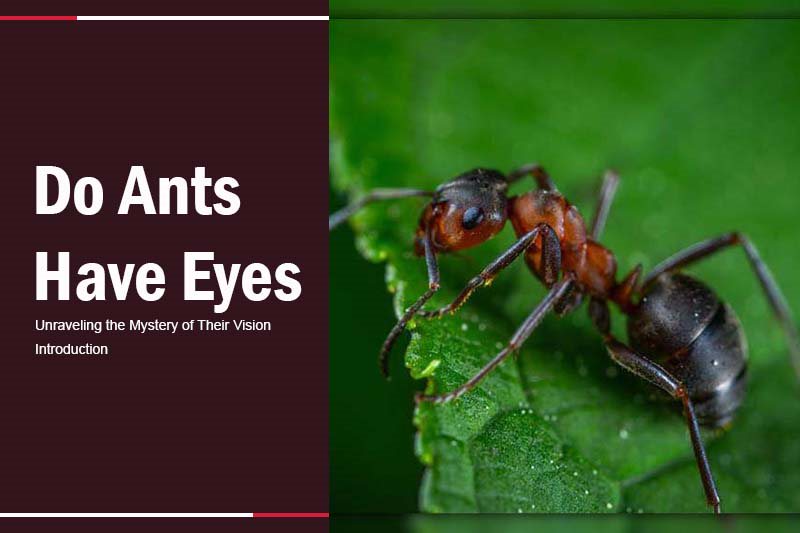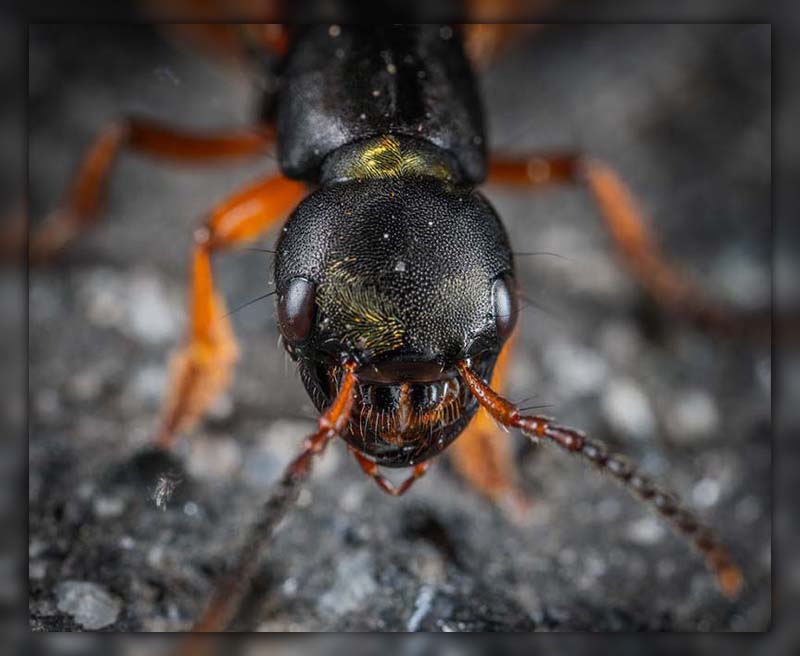Ever stumbled upon a trail of ants and wondered, “Do Ants Have Eyes?” Well, you’re not alone. Many of us are intrigued by the eyes of an ant, these tiny facets that seem to allow them to navigate our world so seamlessly.
But, how exactly do ants eyes “see” their environment? And what can the study of ant eyesight teach us about the intricacies of nature? If these questions have been bugging you (pun intended!), you’re in the right place.
We understand the innate human curiosity to uncover the mysteries of the seemingly mundane. With this guide, not only will you unearth the secrets of ant eyes, but you’ll also gain a newfound appreciation for their adaptability and survival skills.
Let’s embark on this enlightening journey together, one where every tiny detail about ants eyes promises to amaze!
Do Ants Have Eyes?
Absolutely! Most ant species do have eyes, albeit their size and functionality can differ based on the species and their specific roles within the colony. It’s a fascinating aspect of the world of pests that many of us overlook.
Is the eyesight of ants good?
Surprisingly, the majority of ants don’t have stellar eyesight. While some ants, especially those that forage during the day, have better vision, many underground dwellers are nearly blind and rely more on their other senses.
Remember, these little critters have evolved to prioritize what works best for their environment.
What is the Structure of an Ant’s eye?
The eyes of an ant, like many other insects, are composed of numerous small visual units called ommatidia. Each ommatidium consists of a lens, a crystalline cone, and a light-sensitive organ at the base.
These eyes allow ants to detect movement and light, but the clarity of their vision isn’t as defined as human eyesight.
It’s like viewing the world through a mosaic of tiny tiles, each capturing a fragment of the larger picture. Intriguing, right?
ach eye, depending on various factors, including the ant’s ecological niche, behavior, and evolutionary adaptations.

How many Ommatidia are there in an Ant’s Eye?
Alright, folks, gear up for a microscopic adventure! An ant’s eye isn’t like ours; it’s a compound one made of tiny units called ommatidia.
Depending on its species, an ant may have a modest dozen to a whopping between 150-650 ommatidia in each eye, depending on various factors, including the ant’s ecological niche, behavior, and evolutionary adaptations.
What determines the Quality of an Ant’s Vision?
Beyond just counting ommatidia, there’s more to this tale. The clarity of an ant’s vision can be influenced by a complex interplay of factors including the number and size of ommatidia, lens quality, brain processing, behavioral needs, environmental and evolutionary factors, and wavelength sensitivity.
These aspects together shape the ant’s ability to perceive its surroundings and adapt to different light conditions and habitats. Mother Nature really caters to their job descriptions!
How do ants navigate?
Journeying with ants is nothing short of a lesson in advanced navigation! While their vision plays a role, they also rely heavily on pheromone trails, environmental cues, and even the Earth’s magnetic field.
These critters can also count their steps and use visual landmarks. Think of them as tiny explorers with an in-built compass and map.
Source: Science Magazine
How do Ants See the World?
Through the lens of ants eyes, imagine witnessing a mosaic of images! Their compound eyes provide a fragmented view, and they rely on their antennae for a more tactile experience. So, while they’re seeing, they’re also “feeling” the world. Multi-tasking at its finest!

Can Ants See Humans?
While they won’t recognize your face or hairstyle, ants can certainly detect the mammoth presence of humans. To them, we might be moving mountains that occasionally drop crumbs!
Can Ants See Color?
Yes, but not in a way we might think. Ants can perceive a range of wavelengths, especially in the ultraviolet spectrum. So, while their view of a rainbow might differ from ours, they’re not missing out on the world’s hues.
Can Ants See in the Dark?
While they don’t have night vision goggles, ants are pretty adept at navigating in dim conditions. Their keen antennae help them sense and feel their surroundings, guiding them safely in the dark.
Do different ant species have different types of eyesight adaptations?
Absolutely! Just as climates vary, ant species have evolved specialized vision based on their habitats and roles.
An ant from a sunny desert might see the world differently from one in a dense forest. It’s all about adaptability!
FAQs
Are Ants Color-blind?
Not in the traditional sense! While their color perception isn’t like ours, ants can discern certain wavelengths, particularly in the ultraviolet range.
Can Ants See?
Indeed, they can! But it’s a mix of fragmented visual images and tactile feedback from their antennae.
How does the vision of ants compare to human vision?
Humans see a continuous image, while ants get a pixelated version due to their compound eyes. They might lack in detail, but they gain in a broad spectrum of light detection.
Are ants blind?
Most aren’t, but certain subterranean species might have highly reduced vision, relying more on their tactile senses.
In wrapping up, ants might be tiny, but their world is vast and intricate. Their vision, packed with adaptability and resilience, teaches us that there’s more than one way to “see” the world.
So the next time an ant crosses your path, give it a little nod of respect; it’s witnessing a world we can only dream of!
As we dive deeper into the world of ants, it’s clear that the question, “Do Ants Have Eyes?” only scratches the surface.
Discover more fascinating insights about our tiny neighbors in other articles right here at Pestweek. If this read intrigued you, spread the curiosity and share it with your friends – let’s all appreciate the wonders of nature together!

Calina Mabel has over 15 years of experience in the field of journalism and communications. Currently, Calina Mabel is the Content Writer for categories such as Cockroach, Ants, Bed Bugs, Mosquito, Rodent, Termite, and Flies on Pestweek.com. She aims to build content for these categories with a focus on providing valuable and accessible information to readers, in order to create the world’s largest knowledge community about Pests.
All content written by Calina Mabel has been reviewed by Emily Carter.



